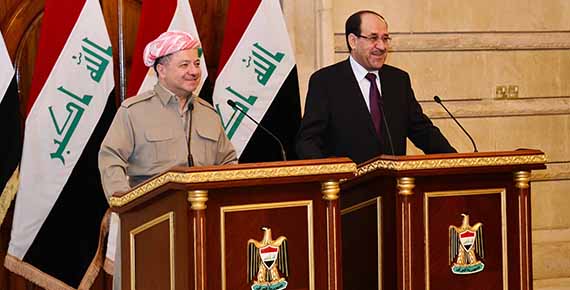In the wake of the U.S. occupation, the first local elections in Iraq were held on January 30, 2005 and were boycotted by the Sunni Arab community. The Islamic Supreme Council of Iraq under the leadership of Abdul Aziz al-Hakim became the winner of the polls; the Kurdistan Democratic Party led by Masoud Barzani came second, the Patriotic Union of Kurdistan under Jalal Talabani came third and the Muqtada al-Sadr’s alliance ranked fourth. The second local elections were held on January 31, 2009 with the participation of the Sunni Arab community. The State of Law Coalition led by Nouri al-Maliki came first, Al-Mehraab Martyr List led by Abdul Aziz al-Hakim came second, the Independent Free Movement led by Muqtada al-Sadr came third and the Tawafuq led by Tariq al-Hashimi came fourth in the elections. In the 2009 elections, the Sunni Arab community seized the control of Sunni provinces notably Mosul.
The third local polls were held in two phases, the first of which was held on April 20, 2013 in twelve provinces while the second one was held on June 20, 2013 in two provinces. The three provinces of the Kurdistan Regional Administration (KRA), in Duhok, Erbil and Sulaymaniyah and the town of conflict, Kirkuk, were not included in the process. As a result, the elections were held in nine southern provinces mostly populated by the Shiite, four central Iraq provinces mostly populated by the Sunni and Baghdad. Held in an environment of weak political process, the 2013 local elections were pale in comparison with other elections and specifically reminded of the 2005 local polls boycotted by the Sunni Arab community.
POLITICAL ALLIANCES
Both Shiite and Sunni Arabs participated in the 2013 local elections from separate lists. The State of Law Coalition of al-Maliki, Citizens Alliance of al-Hakim and the Liberal Coalition of al-Sadr took part in the Shiite front. Al Iraqia National and United Coalition led by Ayad Allawi, the Uniters List led by the Speaker of the Parliament, Usama al-Nujayfi and the Iraqiyya Arabs led by Saleh al-Mutlaq took part in al-Iraqia front. Kurdish groups participated in the elections from the Fraternity and Coexistence List. Groups also formed denominational alliances in the elections. Shiite Arabs in Diyala united under the Diyala’s National Alliance while Sunni Arabs united under the Diyala Iraqia Alliance.
Among Shiite Arabs, the Prime Minister Maliki and Sadr disagreed on issues such as governance, Sunni Arabs, the KRA and relations with neighboring countries. Maliki adopted a conflictive attitude towards these issues while Sadr criticized Maliki and al-Hakim adopted a balance policy. Among Sunni Arabs, Nujayfi and Mutlaq competed with each other. Mutlaq faced problems with anti-Maliki protesters in Sunni Arab provinces while Nujayfi brought the demands of protesters to the political arena.
Maliki supported Mutlaq and independent actors against Nujayfi in Sunni regions. Al Maliki’s State of Law Coalition won the elections by gaining 97 seats, al-Hakim followed with 60 seats and the Sadr group came third by gaining 44 seats in the first leg of the polls held in Shiite provinces. On al-Iraqia Front, Allawi’s United Iraqi Alliance managed to win only 11 seats while Nujayfi’s Uniters List came fourth with 13 seats.
Al Mutlaq suffered a heavy defeat with 5 seats. Kurds’ Fraternity and Coexistence List gained 1 seat in Saladin and 3 seats in Diyala, 4 seats in total. In Diyala mostly populated by the Sunni, Shiite Diyala al-Watani Alliance gained 2 more seats than Sunni Diyala al-Iraqia due to low participation of the Sunni Arabs. Because there is not an election threshold, local actors seemed efficient and sometimes surpassed other main political parties. For instance, some independent lists gained 9 seats in Karbala and Najaf, 6 seats in al-Qadisiyyah and 12 seats in Saladin. The Kurdish won 11 seats; Nujayfi followed with 8 seats and Allawi with 2 seats. Three independent lists that are distant to Nujayfi won 10 seats in the








